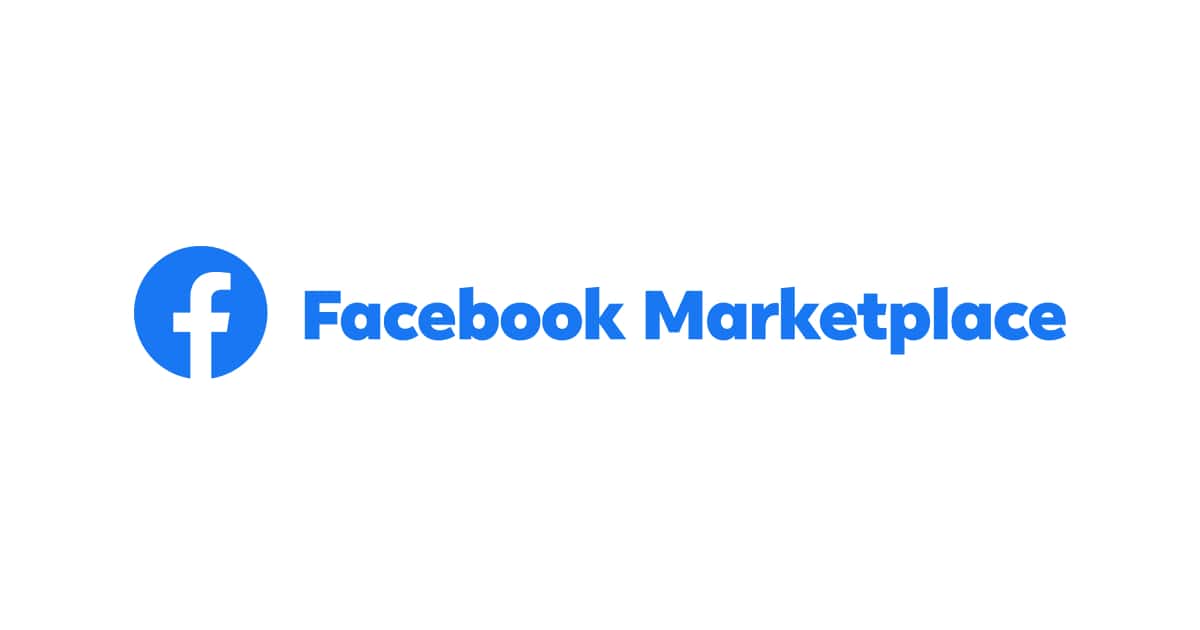Facebook Marketplace is a good place to buy and sell items online. However, like other online marketplaces, it can attract scammers. In the past, these scams were common on Ebay or Craigslist, but now many of them have moved to Facebook (and they seem to be almost exactly the same). If you see a listing that seems suspicious or if you think you have interacted with a fraudulent seller, it’s important to report it right away.
Reporting them can help protect you and other users from falling for scams. Navigating Facebook Marketplace can be a bit like walking through a busy city flea market. While most people there are honest sellers and buyers, there are also scammers waiting to take advantage of the unwary.
Common Facebook Marketplace Scams
Before reporting, it helps to recognize common scam tactics:
- Requests for payment outside Facebook (gift cards, wire transfers, crypto)
- Refusal to meet in person or use safe payment methods
- Fake shipping confirmations
- Prices that seem too good to be true
- Requests for personal or financial information
- Accounts with little activity or newly created profiles
How to Report a Scammer on Facebook Marketplace (Mobile App)
Step 1: Open the Listing or Conversation
- Go to Facebook Marketplace
- Open the suspicious listing or chat conversation
Step 2: Report the Listing
- Tap the three dots (⋯) in the top corner of the listing
- Select Report listing
- Choose the reason (e.g., Scam, Fraud, or Misleading)
- Follow the on-screen prompts and submit the report
Step 3: Report the Seller’s Profile
- Tap the seller’s profile name
- Tap ⋯ or More
- Select Report
- Choose Scam or fraud
- Submit the report
Step 4: Report the Message (If Applicable)
- Open your chat with the seller
- Tap the seller’s name at the top
- Select Report
- Choose the appropriate reason
How to Report a Scammer on Facebook Marketplace (Desktop)
- Go to facebook.com/marketplace
- Open the suspicious listing or seller profile
- Click the three dots (⋯)
- Select Report
- Choose Scam or Fraud
- Submit your report
What Happens After You Report a Scammer?
- Facebook reviews the report
- If the seller violates Facebook policies, actions may include:
- Removal of the listing
- Account restrictions or suspension
- Permanent account ban
- You may not receive detailed updates, but your report helps protect the community
What to Do If You Already Sent Money
If you’ve already been scammed:
1. Contact Your Payment Provider
- Credit/debit card: Contact your bank immediately
- PayPal or similar services: File a dispute
- Gift cards or wire transfers: Act quickly—recovery may be limited
2. Report to Facebook Support
- Go to Settings & Privacy → Support Inbox
- Check for updates or submit additional details
3. Report to Authorities
- United States: Report to the FTC at reportfraud.ftc.gov
- Other countries: Contact your local consumer protection agency
Tips to Avoid Facebook Marketplace Scams
- Meet in public places for local transactions
- Use Facebook’s recommended or secure payment methods
- Avoid shipping when possible
- Never share verification codes or passwords
- Trust your instincts—walk away if something feels off
Reporting Fraudulent Activity on Facebook Marketplace
Recognizing Red Flags of a Facebook Marketplace Scam
Here are some common red flags to watch out for:
- Unrealistic Prices: If an item’s price is significantly lower than similar listings, it might be a scam. Scammers often use low prices to lure in potential buyers.
- Pressure to Pay Quickly: Legitimate sellers are usually flexible with payment methods and timelines. If a seller pressures you to pay immediately, especially through unconventional methods like gift cards or money transfers, be cautious.
- Requests for Personal Information: Sellers shouldn’t ask for your social security number, bank account details, or other sensitive information.
- Vague or Unavailable Descriptions: Scam listings often have limited descriptions or lack crucial details about the item’s condition or location.
- Issues with Seller Profiles: If the seller’s profile seems new, has no friends, or lacks activity, it could be a red flag.
How to Report a Scammer on Facebook Marketplace
If you suspect a scam, you can report the seller or listing directly on Facebook Marketplace. Here’s a step-by-step guide:
Reporting a Scammer Seller Profile:
- Go to the seller’s profile on Facebook Marketplace.
- Click on the three dots in the top right corner.
- Select “Report Profile.”
- Choose the most appropriate reason for reporting the profile (e.g., “Fake Account,” “Spam”).
- Provide additional details about the suspicious activity in the optional text box.
- Click “Submit.”
Reporting a Scammer Listing:
- Open the listing you believe to be fraudulent.
- Click on the three dots in the top right corner.
- Select “Report Listing.”
- Choose “Scam” or the most relevant option from the reporting menu.
- You may be asked to provide additional details about the scam.
- Click “Submit.”
Table: Reporting Options for Facebook Marketplace Scams
| Reporting Scenario | Option Selection |
|---|---|
| Reporting a seller’s profile | Report Profile > Select Reason (e.g., Fake Account, Spam) |
| Reporting a fraudulent listing | Report Listing > Select Reason (e.g., Scam, Item Appears Fake) |
By following these steps and reporting suspicious activity, you can help Facebook identify and remove scammers from the platform, making Facebook Marketplace a safer space for everyone.
Additional Tips
- Never share your personal information: This includes your social security number, bank account details, and home address.
- Be wary of requests for immediate payment: Legitimate sellers are usually flexible with payment methods and timelines.
- Use Facebook Pay for secure transactions: Facebook Pay offers an added layer of security for your online purchases.
- Meet in person for local transactions: If you’re buying an item locally, arrange to meet in a public place to inspect the item before handing over any cash.
- Report suspicious activity to Facebook: If you believe you’ve been scammed, report it to Facebook so they can take appropriate action.
By staying vigilant and following these tips, you can minimize your risk of falling victim to scams on Facebook Marketplace.
Understanding Facebook Marketplace Scams
When you’re scrolling through listings, keep your eyes open for red flags. If you stumble upon an offer that’s too good to be true, it probably is. Scammers often lure in victims with unbelievable deals only to pull off either a bait and switch or a phishing scam. They might advertise a high-end gadget at a jaw-droppingly low price but what arrives in the mail, if anything does at all, could be a knock-off or broken.
Common Facebook Marketplace scams might include:
- Phishing scams where a seller asks for your login info or personal details.
- Bait and switch, where the item advertised is different from what’s actually sold.
- Overpayment scams, where a buyer sends a fake confirmation that they’ve paid more than the selling price, causing confusion.
It’s crucial to stay on the lookout and avoid scams by practicing safe online shopping habits. Always think twice before clicking on links or sharing personal information. Be cautious of suspicious listings or anyone pressuring you to act quickly.
Here are some quick safety guidelines:
- Verify the authenticity of the item and the seller.
- Use secure payment methods recommended by Facebook.
- Meet in public places for local pickup transactions.
Remember, if something feels off, it’s better to pass on the deal and keep searching. Your safety and security should always come first.
How to Identify and Avoid Scammers
When navigating Facebook Marketplace, it’s crucial to distinguish authentic listings from potential scams. Awareness and vigilance are your best tools.
Checking Seller and Buyer Profiles
Before anything else, inspect the profiles of those you’re dealing with. A legitimate seller’s profile should have a clear profile photo and a history of ratings and reviews. Don’t just glance at the overall score; read the comments to get a sense of their dealings. For buyers, it’s often tougher to assess, but a quick look at how long their account has been active and their interactions on the platform can offer clues. Fake Facebook accounts typically show sparse personal details and little to no genuine interaction with other users.
Analyzing Communication and Listings
Next, turn a critical eye to messages and listings. Authentic communication doesn’t rush you or pressure you with tactics to commit quickly. Be wary of sellers who refuse to provide additional photos or dodge questions about the item’s condition. Look out for listings of electronics or other high-value items at prices that seem too good to be true; they often are. Counterfeit items tend to have blurred or inconsistent images, and their descriptions might have spelling errors or implausible details. Pressure tactics, like a seller insisting on a deposit or payment in advance to “hold” an item, are red flags.
Verifying Payment Methods and Conditions
Ensure that the payment method is secure. Services like PayPal offer a degree of protection, as they allow you to request a refund if the deal goes sour. Avoid wire transfer, Zelle, Venmo, or gift cards, which are favorites among scammers due to the difficulty in tracing or contesting transactions. Never share verification codes, financial information, or agree to pay illegal fees. If you are asked to overpay and then return the excess to the buyer, it’s likely an overpayment scam, often using stolen credit cards. If an issue arises, contacting local law enforcement and using the Facebook app‘s reporting feature can help you take action against fraud.
Steps to Report a Scammer on Facebook Marketplace
If you encounter a scammer on Facebook Marketplace, taking prompt and decisive action can protect both your interests and the community. This section guides you through the necessary steps, from using the Marketplace’s reporting features to engaging with authorities.
Reporting Through Marketplace Interface
When you spot a scam, act quickly. Here’s how to report directly within the Facebook Marketplace:
- Go to your listing: Click on ‘Your Listings’ to locate the item the buyer is interested in.
- Open communication: Click the message from the buyer on the listing page. If the message isn’t visible, select ‘See More’.
- Report: Look for and click on the option to ‘Report Buyer’ or ‘Report Seller’.
- Specify the issue: Choose ‘Scam’ from the given categories and then provide any additional details as prompted.
Contacting Facebook and Law Enforcement
After reporting through the Marketplace interface:
- Gather evidence: Keep all communications, payment receipts, and other relevant information.
- Report to authorities: Consider reporting to law enforcement and the Federal Trade Commission to handle the scam adequately.
- Contact Facebook: If using Facebook Checkout, reach out to Facebook support for possible purchase protection assistance.
Following Up After a Report
Once you’ve made your report:
- Monitor communications: Stay vigilant for any follow-up communications from Facebook or authorities. Respond to these promptly.
- Stay updated on policies: Keep an eye on Facebook’s purchase protection policies and scam alerts to prevent future incidents.
Remember, when using online marketplaces like Facebook, it’s crucial to remain cautious and informed to avoid scams involving overpayment, stolen credit cards, and suspiciously low prices.
Frequently Asked Questions
Understanding how to navigate issues with scams on Facebook Marketplace is essential. Here’s a straightforward guide to handling such situations effectively.
What steps should I take if I’ve been scammed on Facebook Marketplace?
If you suspect you’ve been scammed on Facebook Marketplace, immediately cease all communication with the seller or buyer. Catalog any proof of the scam, like messages or transaction records, and be ready to provide them when you report the incident.
How can I report a buyer on Facebook Marketplace for fraudulent activity?
To report a buyer for fraudulent activity, visit the Marketplace section from your News Feed, select your account, and then choose your listings. Find the item they purchased, click on the conversation with the buyer, and then follow the prompt to report them by selecting the appropriate option.
What are the consequences of reporting someone on Facebook Marketplace?
When you report someone on Facebook Marketplace, the platform will investigate the report. If they find the report valid, the individual may face consequences ranging from a warning to a permanent ban, depending on the severity of the offense.
What are the channels to reach out to Facebook Marketplace support?
To reach out for support, you can use the help center on Facebook’s website. You can also navigate to the Marketplace section and use the report links provided there for a more streamlined approach.
How can I report a scammer on Facebook if they have blocked me?
Even if a scammer has blocked you, you can still report their profile through the help center. Visit the help section and follow the instructions for reporting a profile or listing that seems suspicious.
In the event of a scam on Facebook Marketplace, is involving the police a viable option?
Yes, involving the police is a viable option if you are a victim of fraud or a scam on Facebook Marketplace. After reporting the scam to Facebook, consider filing a report with your local police department, especially in cases where a large sum of money is involved.




